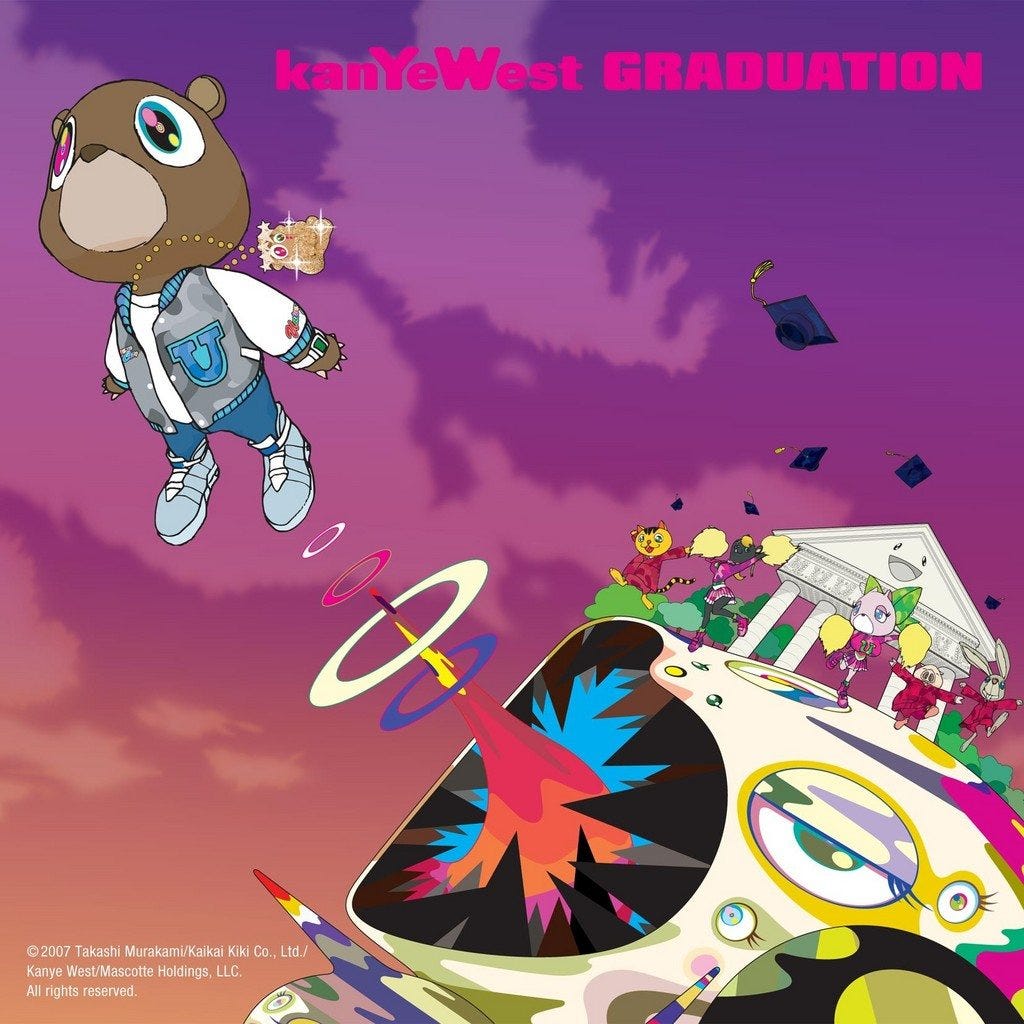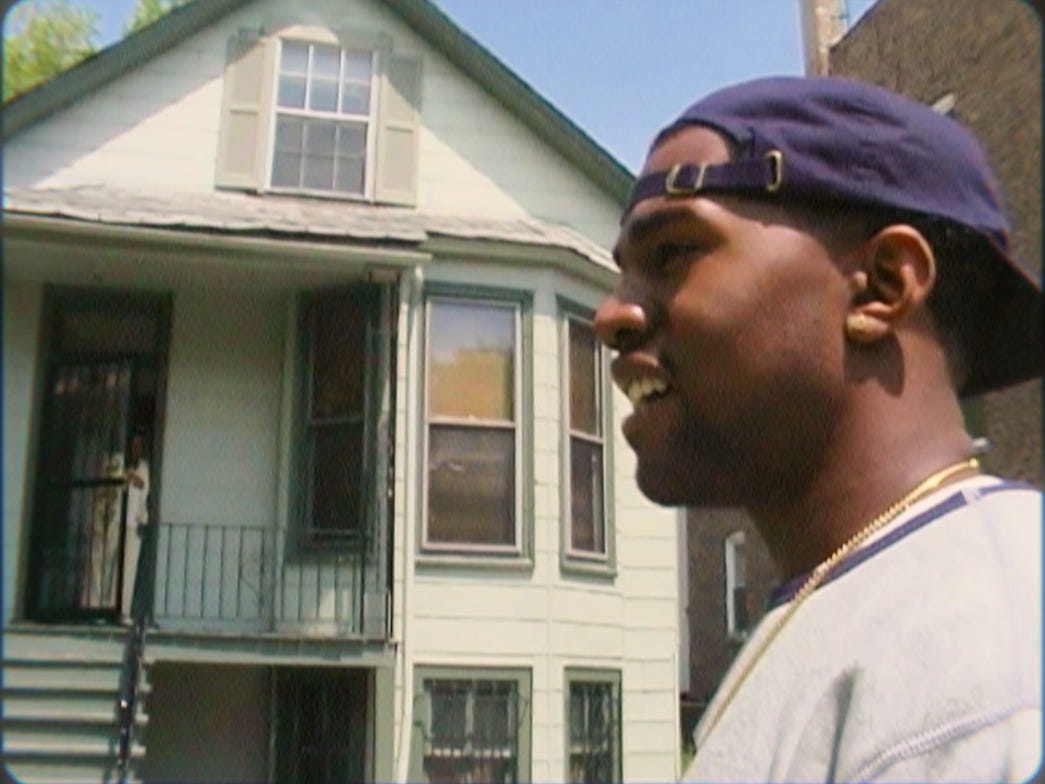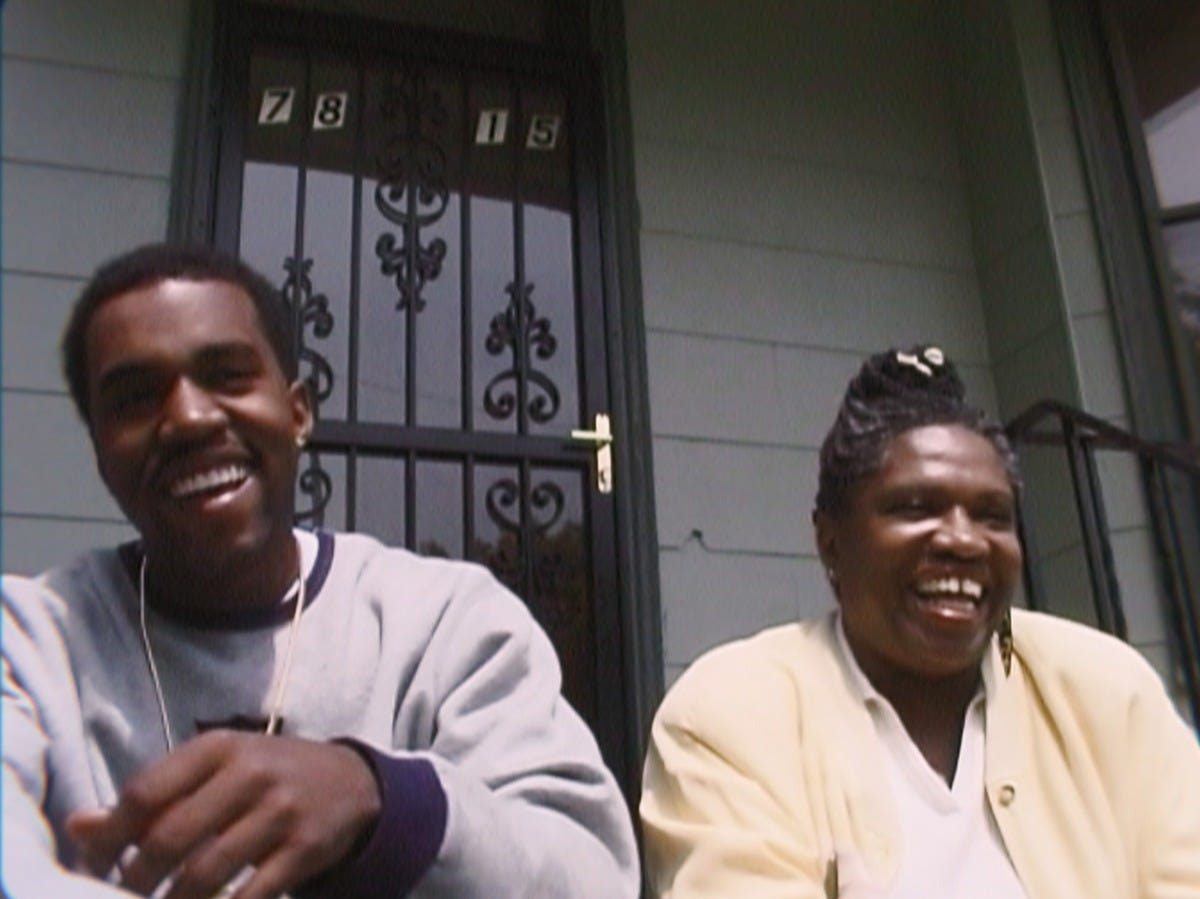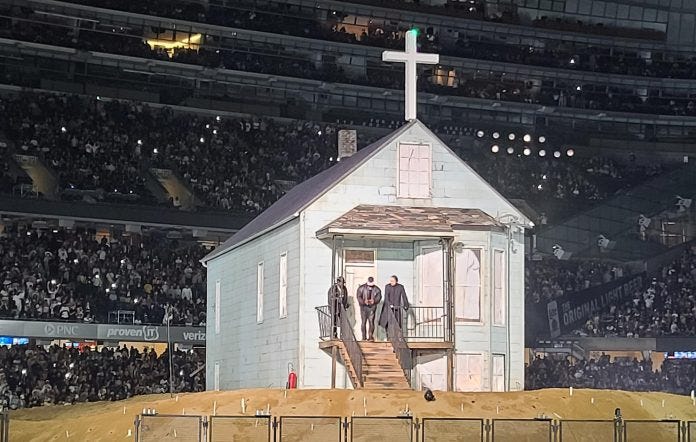In Chicago, there are nights in winter when the sky glows an orangey-purplish-pink. It’s a composite of reflected luminescence, the light pollution trapped by low-hanging clouds produces a strange atmospheric alchemy. No stars, no moon, just an opaque swathe over the city. Under this sky, you will glow too. I can’t name this color, perhaps because it’s more of a feeling.
My favorite word in Japanese is komorebi, translated as ‘the sunlight that filters through the leaves of trees.’ Like the color I can’t name, I wish there were a word for the Chicago equivalent of this in English: ‘the street light that streaks through snowfall.’ Even in the darkest time of night, the snow reflects a twinkling fluorescence of pinks, oranges, and yellows—a reminder that winter’s palette is unexpectedly warm in its stillness. I’m recalling a night in 2008 during the first snowfall of the season. I’m walking alone to the library while witnessing my neighborhood transition from concrete into a gleaming snowscape. I’m listening to 808s and Heartbreaks on the iPod I bought after a long summer slinging Coffee Coolattas, when “Street Lights” comes on, and it encapsulates everything I’m feeling in the moment. Whenever I hear that song, the piano layered to sad synths and the grainy reverb on Kanye’s voice take me back to that snowy night senior year. I am glowing under that sky’s unnamable color, accumulating more points of reflection, feeling like I am the only person in the city. Nothing is happening, yet, I am on the verge of everything.
Let me know, do I still got time to grow?
I played 808s and Heartbreaks on repeat during my last year of college. It felt like my graduation album and arguably Kanye West’s ‘commencement’ as well. 808s set a huge stylistic departure from his first three albums, The College Dropout (2004), Late Registration (2005), and Graduation (2007), an incredible sequence of sounds united by one concept: quitting school to pursue big dreams. These four albums made the soundtrack of my high school and college experiences, the most formative years in my music taste development. And when I say ‘music taste’ I really mean memories fused to melodies. So many songs off of these albums connect me to places, people, and times of my life in mundane and meaningful ways. Music reminds us of homes past until it becomes the home itself.
Last week I introduced June’s theme, “A Commencement of Sorts.” I’m very drawn to different ways artists create rituals around endings and how their styles, careers, and collaborations change thereafter. What happens when art intentionally reflects back at the journey to get there?
Track 10 is about Kanye West’s third album, Graduation. Homecoming, but you can’t go home again.
Before we dive in, I feel compelled to mention that I am torn about Kanye, who now goes by Ye, and I’m not sure how to address it. He has said and done some questionable-hurtful-confusing stuff that I don’t support, but I hope to center this in a way that peels back my/our connection to and alienation from his work.

It’s been 15 years since Kanye West released Graduation, his third album, which solidified him not just as a star, but a paradigm-shifting force in hip hop. He was the future, a beat producing wunderkind turned multi-hyphenate MC, who toppled the era of bling and Y2K gangsta rap (see 50 Cent) with introspective bars and retro samples. The now ubiquitous sound of “chipmunk soul,” aka his trademark use of high-pitched, sped up soul music samples, was a blast of fresh air when we first heard it on The College Dropout. On Graduation, he evolved further by honoring the past while also incorporating more futuristic sounds and visuals from other cultures. His collaboration with French electro-house duo Daft Punk on “Stronger” pairs well with its Hype Williams-directed music video set in a futuristic Tokyo and inspired by the cyberpunk anime film Akira. For Graduation’s album cover and the video for “Good Morning,” Kanye collaborated with one of the biggest living contemporary artists, Takashi Murakami, known for his colorful, creepy, and kawaii ‘Superflat’ worlds.
The theme of The College Dropout focused on Kanye making it in the industry. Late Registration established him as a bonafide hitmaker and performer. Graduation acknowledged his stadium status—he had finally made it, and he made it big. With its mix of nostalgic, triumphant, celebratory, and reflective tracks, Graduation evokes the spirit of a sonic commencement ceremony. He may have dropped out of college, but this was his dissertation.
I made a Venn diagram that breaks down the songs on Graduation by future, present, and past feelings. All of these are debatable, but I have my reasons! I based this categorization on sources of samples, collaborations, beats, production, story arc, lyrics, and uhhh, holistic sound vibes.
Graduation Venn Diagram
While I have many songs that I love off of this album, “Homecoming” stands out for me for its sentimental value and narrative structure. Kanye raps about Chicago like the lover he left behind in order to follow his dreams, opening with a bar that pays homage to Chicago’s very own Common’s “I Used to Love H.E.R.”
I met this girl when I was 3 years old, and what I loved most she had so much soul
Throughout the song he describes the guilt he feels leaving “Windy,” (for Windy City) behind and how everything he does is to make her proud. And while he achieved the success he set out to do, he still longs for the home he once had before everything changed.
Now everybody got the game all wrong
I guess you never know what you got ‘til it’s gone
I guess that’s why I’m here and I can’t come back home
And guess when I heard that? When I was back home
What makes Graduation the album, and graduation the event so bittersweet is that the success of moving on comes at the cost of severing everything that makes a place a home, except for the place itself. Kanye returns to Chicago but it’s always different, each time highlights more reminders of distance. I listen to “Homecoming” every time I take the Blue Line from O’Hare into the city as a returning ritual, but the whole ride I keep thinking about what has changed about the city since my last visit. How I’ve changed since my last visit.
Graduation feels thematically pivotal because “Homecoming” sets off this tension around returning home, which pervades all of Kanye’s work since this album. However, the more he longs to return, the more he becomes estranged from it. This struggle feels a little Freudian.
In 1919, Sigmund Freud wrote an essay entitled, “The Uncanny” or “Das Unheimliche.” He defines the uncanny as “that class of the terrifying which leads back to something long known to us, once very familiar.” In German, ‘heimlich’ means homelike, familiar; something becomes ‘unheimlich’ through some kind of repression. The uncanny implies a perversion that alienates someone from a previous intimacy. The examples Freud provides to explain this concept include the creepiness of life-like dolls and ghosts:
“Many people experience the feeling in the highest degree in relation to death and dead bodies, to the return of the dead, and to spirits and ghosts. As we have seen, many languages in use today can only render the German expression “an unheimliches house” by “a haunted house.”
The way I understand it, the uncanny is basically the haunted simulacrum of something once held dear. If I could add a modern addendum to “The Uncanny,” I’d also throw in the example of Hologram Tupac from Coachella 2012.
I bring up Freud because throughout Kanye’s music, he extols his love for Chicago and his longing for it, but he struggles with the idea that he can never return. Each time he tries to come home, he ends up altering it in some way, ultimately rendering it uncanny. Is it possible that reflection is the repression?
The 2022 Netflix documentary, jeen-yuhs: A Kanye Trilogy, is a three-part series that spans 20+ years chronicling the story of Kanye’s rise and fall, his illustrious work and recurring controversies. It’s heartbreaking in many ways, especially watching the scenes with him and his late-mother Donda West, who passed away 2 months after Graduation was released. After Kanye finally lands his hard-won record deal with Roc-A-Fella Records, he returns from New York and revisits his childhood home on the South Side of Chicago with his mother.

From the front yard to each room, they share memories and explain how things used to be when they lived there. Looking outside at the front of the house, Kanye smiles wistfully and says:
“It’s crazy how different it looks, ‘cause it looks…it seemed so much bigger to me when I pictured it, you know?”
Kanye and Donda sit on the front porch, his mother beams with pride as she tells stories about him winning school talent shows as a precocious kid. It’s clear how strong their bond is, how much they mean to each other, and how she instilled in him that immeasurable confidence. The changes to the physical details of that house were inconsequential—Donda made Chicago home. Donda was home.

We see Kanye’s childhood home in August 2021, during his final stadium-sized listening party in Chicago promoting Donda, the long-awaited album dedicated to his mother. After buying his childhood home earlier that year, he originally requested the city’s permission to transport the entire structure from 7815 S. South Shore Dr. to the 50-yard line at Soldier Field. The city denied his request. Instead, he created a replica house as part of the stage setting. The biggest change he made was the addition of a large illuminated cross on the roof. During the performance, he stood on the porch alongside ‘canceled’ controversial collaborators, rapper DaBaby, known for his history of homophobic comments, and shock-rocker Marilyn Manson, known for his history of sexual abuse and rape allegations. At the end, the house is engulfed by flames and Kanye emerges from it, totally ablaze. (Alexa, play “Through the Fire.”) Cut to Freud.

This house turns uncanny on many levels, first as a replica of a beloved place. Its de-contextualization from its neighborhood and childhood, its role as a stage prop, its altered resemblance to a church, the problematic porch company, and its ultimate destruction all contribute to the haunted-ness, the alienation, and the terror. Donda is another work that ritualizes an end—only this time, it’s his marriage. In his song, “No Child Left Behind,” Kanye yearns to return to his family, knowing that his divorce is another act of severance from home.

In my own experience following Kanye’s career since watching the video for “Through the Wire” when it debuted on MTV, and then watching the behind the scenes story told by jeen-yuhs filmmaker and long-time friend/collaborator Coodie Simmons this year, processing Kanye’s incredible victories and complex traumas feels overwhelming. For me, it’s a Gatsby-esque rhythm of enchantment and repulsion that I don’t think I can resolve.
I realize in writing this that I have now rendered the song “Homecoming” as uncanny. Listening to Graduation is in a way, me trying to return to a home in my mind built by music and memories from a very formative time in my life–and yet–over the years, watching Kanye be Kanye, I feel increasingly estranged from it. I’m always aware of this tension between holding on and letting go, and the acknowledgement that the perception of art evolves over time, as does the artist, as does the beholder.
As rituals, homecoming is the inverse of graduation, in the same way we make replicas of the homes we can own but not return to.
Thanks for reading.





I had never heard uncanny defined with that element of "once held dear." This was such a beautiful essay on so many levels.
Love love love how you perfectly put into words everything I feel when I'm back in Philly 💕 this is my favorite track so far!